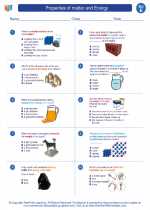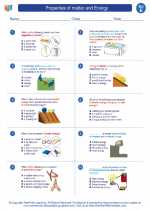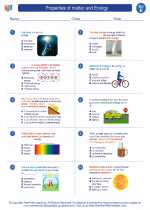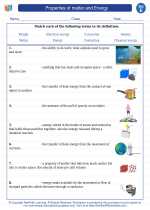Creativity
Creativity refers to the ability to generate new ideas, concepts, or solutions to problems. It involves thinking outside the box, making connections between different concepts, and using imagination to come up with original and innovative ideas.
Factors Affecting Creativity
- Knowledge: Having a wide range of knowledge in different areas can help in making new connections and forming creative ideas.
- Open-mindedness: Being open to new ideas and experiences can enhance creativity.
- Environment: A supportive and stimulating environment can encourage creative thinking.
- Curiosity: Being curious and asking questions can lead to new discoveries and creative solutions.
- Problem-solving skills: The ability to approach problems from different angles and find unconventional solutions can foster creativity.
Ways to Foster Creativity
- Encourage exploration: Allow for experimentation and the freedom to explore new ideas.
- Provide diverse experiences: Expose yourself to different cultures, disciplines, and perspectives to broaden your thinking.
- Practice brainstorming: Engage in brainstorming sessions to generate a variety of ideas without judgment.
- Embrace failure: Learn from failures and use them as opportunities for growth and creativity.
- Engage in creative activities: Participate in activities such as painting, writing, or music to exercise your creative muscles.
Study Guide
Here are some questions to guide your study of creativity:
- What is creativity and why is it important?
- Discuss the relationship between knowledge and creativity.
- How can open-mindedness contribute to creative thinking?
- Explain the role of environment in fostering creativity.
- Discuss the impact of curiosity on creativity.
- What are some strategies to enhance creativity?
- How can failure be beneficial to the creative process?
- Give examples of creative activities that can help develop creativity.
By studying and understanding creativity, you can enhance your ability to think critically and come up with innovative solutions to various problems.
.◂Science Worksheets and Study Guides Fifth Grade. Properties of matter and Energy
Study Guide Properties of matter and Energy
Properties of matter and Energy  Worksheet/Answer key
Worksheet/Answer key Properties of matter and Energy
Properties of matter and Energy  Worksheet/Answer key
Worksheet/Answer key Properties of matter and Energy
Properties of matter and Energy  Worksheet/Answer key
Worksheet/Answer key Properties of matter and Energy
Properties of matter and Energy  Vocabulary/Answer key
Vocabulary/Answer key Properties of matter and Energy
Properties of matter and Energy  Vocabulary/Answer key
Vocabulary/Answer key Properties of matter and Energy
Properties of matter and Energy 

 Worksheet/Answer key
Worksheet/Answer key
 Worksheet/Answer key
Worksheet/Answer key
 Worksheet/Answer key
Worksheet/Answer key
 Vocabulary/Answer key
Vocabulary/Answer key
 Vocabulary/Answer key
Vocabulary/Answer key

The resources above cover the following skills:
PHYSICAL SCIENCE (NGSS)
Matter and Its Interactions
Students who demonstrate understanding can:
Develop a model to describe that matter is made of particles too small to be seen.